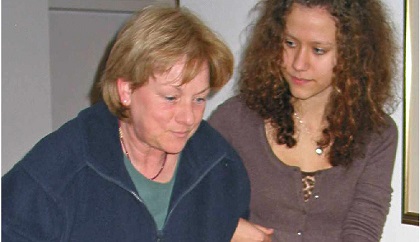
A new report from Carers UK and the University of Sheffield is published today.
The report reveals that the 509,7962 people who provide unpaid care for a disabled, seriously-ill or older loved one in Scotland save the state £10.8 billion every year, close to the cost of a second NHS in Scotland. The report, ''Valuing Carers 2015 the rising value of carers' support'', is the third in a series looking at the value of carers' support to the UK economy. It shows a staggering increase in the value of carers' support in Scotland since 2001, almost doubling from £6 billion to £10.8 billion.
Researchers attribute this rise to a dramatic increase in the number of hours people are caring for, combined with an increase in the cost of replacement care.
Fife currently has over thirty-five thousand carers. The value of carers in Fife is an estimated seven-hundred and fifty-five million pounds.
Carers Scotland Director Simon Hodgson has warned:
''If the Nation's carers were unable to continue supporting their loved ones, it would leave the state with a £10.8 billion black hole. As if this wasn’t worrying enough, we believe there are far more carers in Scotland than the report estimates, meaning that the consequences for society of this support dropping off would be even more catastrophic. The warning comes as Carers Scotland calls for better financial support and employment rights for carers ahead of the UK Treasury's Comprehensive Spending Review.
Today's report reveals that more people are caring for a loved one than ever before. Since 2001, the carer population in Scotland has grown by 6.2%; outstripping the rate of the general population growth in Scotland during this same period (5.9%). Not only are more people caring, but they are caring for longer. Since 2001, the number of people providing 20-49 hours of care a week in Scotland has almost doubled (49%) and those providing 50 hours of care or more a week has increased by more than a fifth (21%).
The number of people needing care, and those needing care for longer periods of time, has increased significantly since 2001. However, as the Scottish population continues to age, local authority funding is in decline, leaving families to increasingly step in to fill the gap. Indeed, local councils in Scotland have seen their funding decrease in real terms by 8.5% since 2010. Further reductions to the Scottish budget, mean that this pressure on public services will continue.''


 Public consultation on Cupar North development opens
Public consultation on Cupar North development opens
 Man, 44, seriously injured in hospital after crash between Comrie and Rosyth
Man, 44, seriously injured in hospital after crash between Comrie and Rosyth
 John Swinney announces SNP leadership bid
John Swinney announces SNP leadership bid
 11°C
11°C
 17°C
17°C